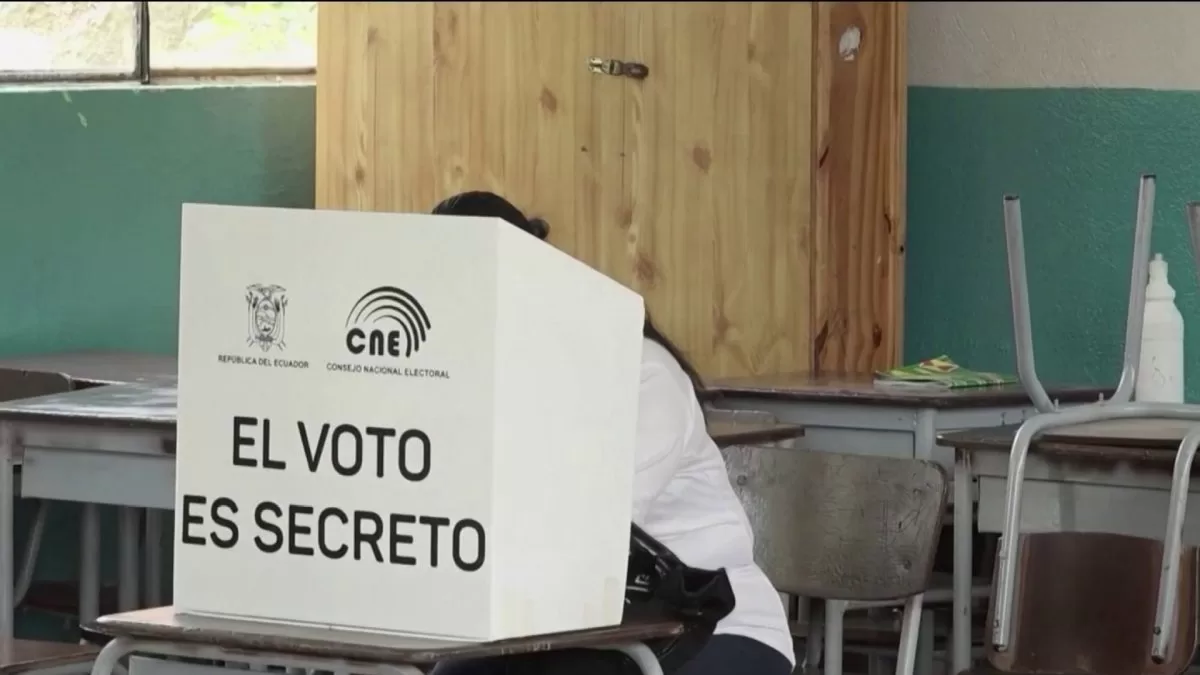Ecuador celebrates this Sunday the extraordinary general elections, while its nationals abroad complain of difficulties in casting their votes.
Ecuadorians have gone to the polls to vote in a national popular consultation and a local one on environmental issues and to designate who will complete the presidential term for which the conservative Guillermo Lasso was elected (2021-2025).
Last May, Lasso dissolved Parliament, with an opposition majority, when he was preparing to debate and vote on his dismissal in a censorship impeachment trial against him for alleged embezzlement, which he denied.
At the same time, he invoked the so-called “cross death”, contemplated in the Constitution, and requested the calling of extraordinary elections, thus shortening his term in half, so that whoever replaces him will govern until May 24, 2025.
A total of seven candidates seek to succeed Lasso, while the National Electoral Council qualified Christian Zurita’s presidential candidacy to replace Fernando Villavicencio, assassinated last week by alleged Colombian hitmen, as he left a political rally in Quito.
VOTE AT HOME
The National Electoral Council (CNE) inaugurated this Friday the so-called “vote at home” to facilitate the suffrage of people over 50 years of age or with disabilities.
When inaugurating the day, the president of the CNE, Diana Atamaint, recalled that voting at home is “an emblematic process of more than a decade ago, which allows people over 50 years of age or with physical disabilities equal to or greater than 75% , exercise their right to vote from their homes”.
The CNE implemented 166 mobile voting boards nationwide for the suffrage of 587 beneficiaries, 268 of them women and 319 men registered for this modality throughout the country.
The boards receiving the vote were made up of three main members and two substitutes, who received the electoral package, ballot box and screen from the Armed Forces personnel.
Once the voting day was installed, the members of the board traveled in a vehicle to the homes of the beneficiaries, following an established route to make effective the right to vote of the voters who are registered.
Once at home, the President of the Board asked the voter or a person they trust for their original, valid or expired ID or passport to verify that the voter was included in the electoral roll.
At the end of the circuit of visits, the ballot box was sealed and delivered together with the electoral package at the electoral processing center where they were kept under military guard until this Sunday when the vote count was carried out.
Voting for Ecuador’s extraordinary presidential and legislative elections began on Thursday, with the suffrage of prisoners without a final sentence, a process that took place inside prisons.
A total of 4,756 citizens were empowered to exercise their right to vote, in 39 Social Rehabilitation Centers, for which 62 Vote Receiving Boards were installed, in 20 provinces.
The president of the CNE, Diana Atamaint explained that 1,224 prisoners paid in a day that took place “in absolute tranquility” under the premise of the principles of equality, participation and inclusion.






